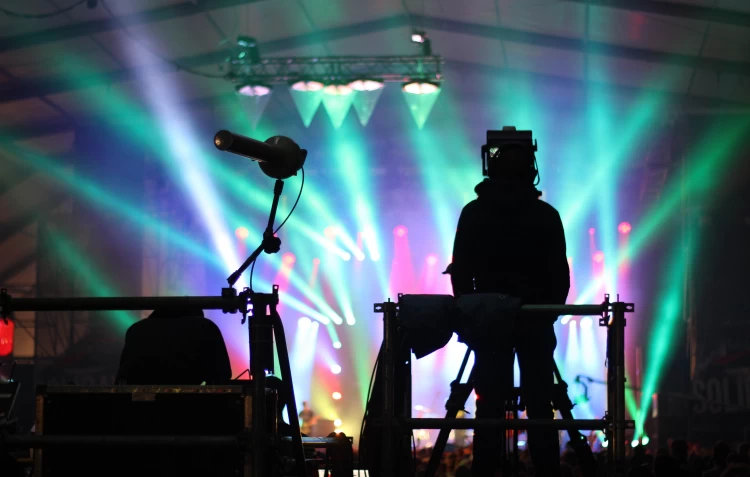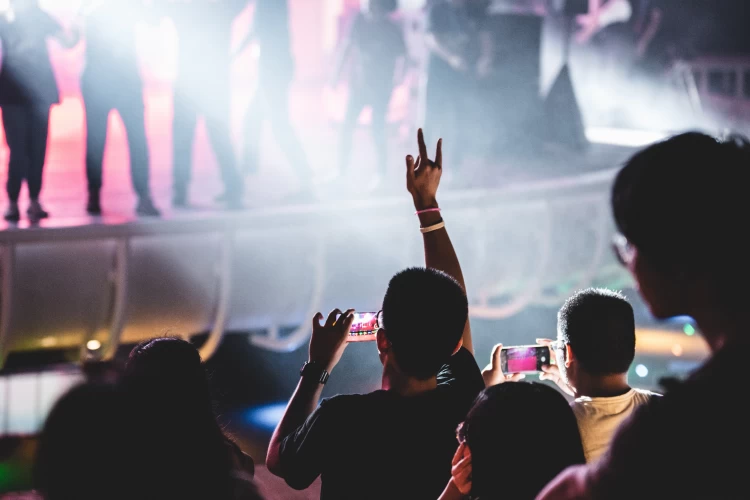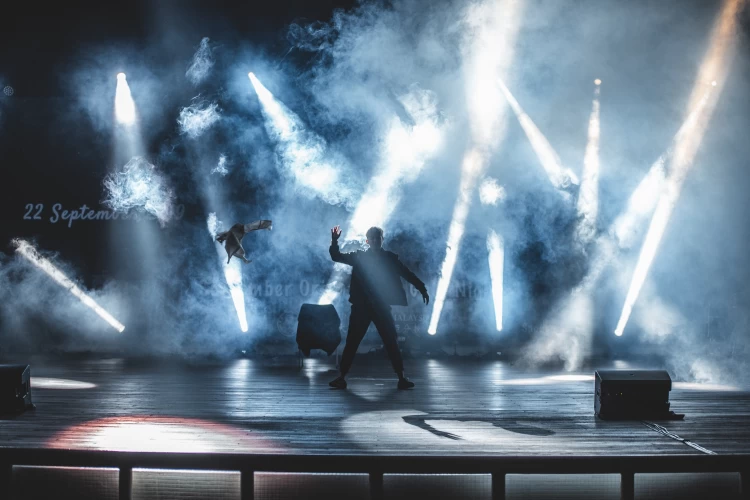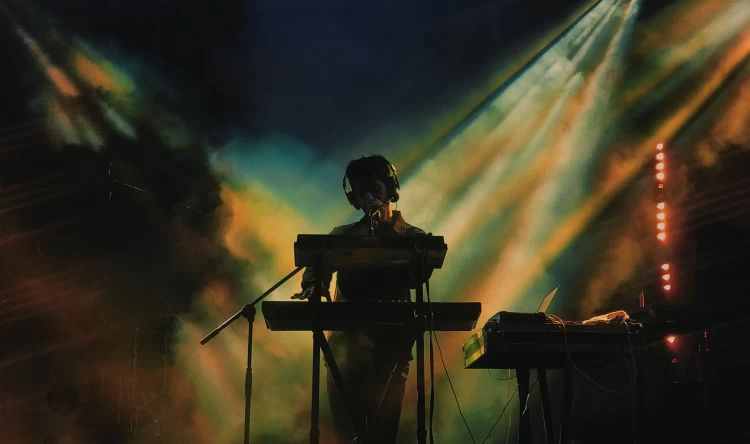Guide To Performing Your First Live Gig | Musician Nerd
Updated on Dec 22, 2021
Performing your first live gig is by far one of the most intimidating accomplishments you'll ever make. I don't care if you're getting ready for the high school talent show, or to play at a jazz bar down the street. Even those who have played several shows will still feel those butterflies in their stomach when they get up on stage again. I know this because I've done it myself. As much as I loved to perform, it took me a long while before I got over all of the stage fright.
One of the best remedies for this common issue performers will face is to be prepared. As the last section in this article will talk about, confidence makes all the difference. Knowing what you have to offer, and knowing you came fully loaded, is going to make you much more confident and ready to perform. While there are many ways to prepare, there are strategies you'll want to implement during your performance to not only gain popularity but build up even more confidence for the next time around.
For today's article, we'll dive into the best ways you can get ready for your first live gig. We'll talk about what you can do to be best prepared, and then talk about what type of equipment you'll need. With this, we'll expand on how you can understand your sound & environment for the best results. For those who want to take it a step further, we'll talk about ways to engage the crowd & build your own persona. This is essential if you're looking to stand out and perform again. So let's get into it!
Guide To Performing Your First Live Gig
Table Of Contents
Preparing Your Set
PReparing for your set may seem a little obvious, but it is always going to be an effective strategy for doing the best performance. I like to know my music inside and out before I go up on stage, having played it so much that it's all down to muscle memory. There is a point where you go from sounding rigid & technical to where you're able to add a little more finesse and sound fluid. This applies to both instruments and vocals.

Lights Engineer Watching Stage
But let us think beyond that. How else can you be prepared? The next few sections will talk about equipment and environment, but those both play a major factor in preparation. Do you know how big the stage will be? If you have a band, you want to make sure you're comfortable playing in the right-sized arrangement. Do you know how large the room will be, or whether there's going to be lights or other external factors at play? Envision and understand all of these factors so you're not taken to surprise before you get up and perform. But also consider what equipment you'll be using so that you can make sure you're comfortable with all the tools in your set.
It may sound cliche but practice does make perfect. If you have stage fright, I can assure you the best cure for that will be preparing ahead of time and feeling comfortable in any situation. If you're confident with your skills, as well as every factor involved in your performance, you'll notice your fears lessen more and more.
The Right Equipment
One of the best ways to make sure you're prepared is to understand what equipment you'll be working with. When playing your first live gig, the venue may have the equipment to supply, and in other cases, you'll bring your own. I've played at several shows where my guitar, microphone, or both were supplied by the venue. While this may be convenient, especially if you don't have the best equipment, it can also be intimidating if it's not what you're used to using. For singers or rappers who want to move around as they perform, it may be worth investing in one of the best wireless microphones as venues typically only supply wired & stood mics.

Singer Standing In Front Of Microphone On Stage
If you're playing instruments, you'll also want to consider the volume of your amplifiers. While some venues will have their own PA (Public Address) System, many require you to use your own stuff. So you must keep this in mind as you prepare so that you're not playing a show for just the people in the front. If you're playing the acoustic, you may also want to consider investing in some of the best mics for the acoustic guitar. If it's possible, try and make sure you're practicing with equipment you'll be using, and if it's not possible, at least keep those considerations in mind.
The one thing I have to stress the most is to call ahead of time and know what the venue can and cannot supply. I showed up to a gig once at a jazz bar expecting at least two microphones and was disappointed to discover they only had one. This ruined my whole set but was a good lesson going forward. When you arrive, ask for a moment before your set to tinker with anything you need, so that you can make sure your sound is on point.
Understand Your Sound
This section is a little more complicated but essential. I've not only performed (or been involved with concerts) on many occasions, I've also been to hundreds. What may seem so simple to some is actually very complicated for many, which is the importance of understanding your sound. This includes the different volume levels, the equalization, and the acoustics of your venue.

Performers Doing Outdoors Gig
This makes me think back to a performance at my high school where this group of girls was singing, and they sounded absolutely incredible, but there was one major, major issue. One girl was singing directly into her mic, and it was louder than not just the music, but her fellow performers. It turned what could've been a 10/10 performance into a 6/10 at best. And I've seen this issue happen in other cases, such as a guitar is louder than the mic, or a drummer taking over the whole room. My first time using an acoustic-electric, I didn't have one to prepare with at home. When I went out on stage, I took a minute or two to compare the sound of my microphone and my guitar. If you're incredibly nervous, you may want to just walk out, power through, and be done, but you have to forget about that and take the time to ensure you sound your best.
Other factors include the sound of the venue's in-house speakers. Is the equalization different? Also, if you're playing outdoors but you've only practiced inside, will the sound move differently? It's essential for you to consider the acoustics in music, and how the venue you're playing could affect them. Taking your time with this step can make the difference between amateur and professional.
Standing Out
This step is not as essential as all the others, but it can make quite the difference anyhow. A question for you to think about; Are you performing this live gig as a one-time-only, or are you interested in building a career out of music? If you want the reputation of a performer, and have the opportunity to make it in one of the hardest career paths imaginable, you'll need to stand out. The best way to do this is having personality & engaging effectively with your audience.

Fans Cheering At Live Concert Gig
Let's start by talking about engaging the crowd. This doesn't mean you're necessarily running around high-fiving everyone, or attempting to do a crowd surf (please don't even try it, you could hurt yourself or others). While you may want to engage in ways that are unique to your audience, even just simply talking between sets will make you much more personable. Market yourself, tell them who you are, and if you can, try to be funny! I've seen a few people who will leave it at "hi, my name is", but you can take it even further if you're comfortable with that. When I go to rap concerts, even at smaller venues, they are running around giving out high-fives, jumping up and down, and getting everyone on their feet. Just make sure you know your audience.
From here, you'll want to build a personality. Who are you? Who do you want to be? To build up your reputation, people need to like you. Many celebrities that you think you know are totally different from their public persona. I'm not saying to lose yourself or to not even be yourself, but it's okay to add a little spice or act a little cocky. Maybe you're a little awkward and goofy, that's not necessarily a bad thing either! So consider how you want to seem, how you want to be perceived, and make it a reality.
Confidence
While each section may touch upon this last piece, it's absolutely essential for you to stay confident on stage. The crowd will be able to sense this, and your own nerves can be impacted by it. If you can let go of everything around you, and remember you're the main character, you can stop going through the motions and instead add a little finesse and flare.

Performer Posing On Stage
But like we talked about in the last section, performing a good show is only half the equation. If you're performing, it's because you care at some level how you're perceived, and what sort of reputation you hold in music. Whether you're just playing for fun, or getting ready to launch your own music career, you want everyone to walk away from this performance with memories. I know when I go to local gigs and see someone playing on stage, getting into the music, and letting it all out, I get the impression of professional talent who's been doing this for a while. I even remember one standout performance from the high school days because the singer seemed like he'd been doing this his whole life.
Most importantly, however, is making sure you're comfortable. The worst part about stage fright is that you're afraid to do poorly, yet you also know your fear of that can end up causes you to make it a reality. It's such a curse, right? But following through the steps from this guide, you're going to build up your confidence in different ways. So don't forget who everyone came to see, and show them just how talented you are.
Conclusion
By now you should feel one step closer to being ready for this performance. You've already come so far as to have a show prepared, whether it's for school or your own career on the road. As someone who has faced this fear many times, let me tell you that the feeling you get from making the crowd cheer is euphoric. It makes it all so worth it in the end, and now, while I don't perform anymore, I can say it's one feeling I miss more than anything.
Another thing to remember is that you came here and read this because you care that much. If you're willing to find all the best ways to prepare for your show, and you practice up until it's time, then I know for a fact you'll do great. Even if you can't get the best equipment, I always say it's about the artist, not the tool. And while you may not be able to choose where exactly you're playing, it's good to know the basics around acoustics while also considering the volume of everything in your set.
Whether you decide to engage your audience and go all-in or not, the one most important thing is to remain confident. That doesn't mean you can't be nervous or afraid, but remind yourself of what you're capable of. Most of the people in the audience likely don't have as many talents like you, and that alone makes you entertaining to them. So let us know down below how your first live gig went, as we love hearing about stories from our readers. And good luck!
Posted on Aug 24, 2021
Performing
Have questions for us? Email us at info@musiciannerd.com
